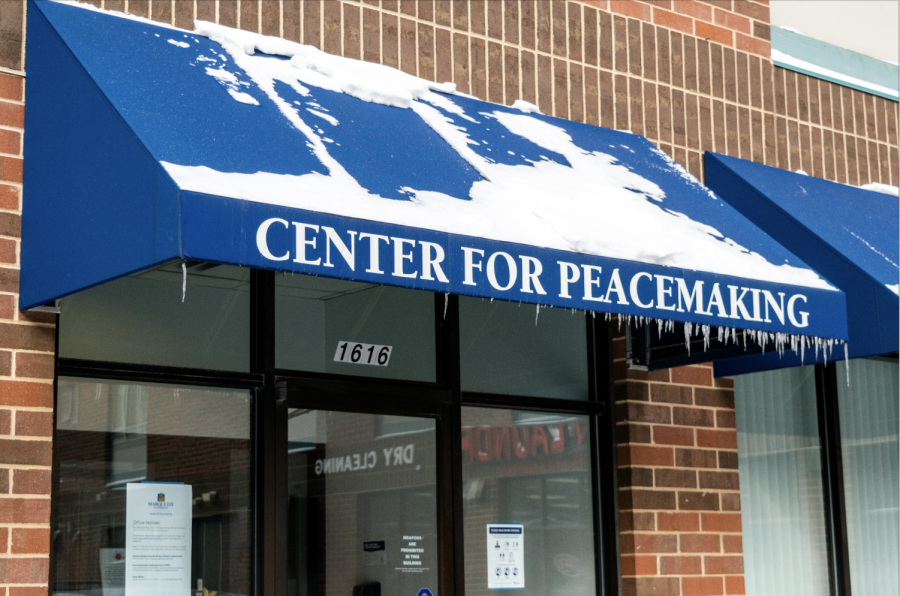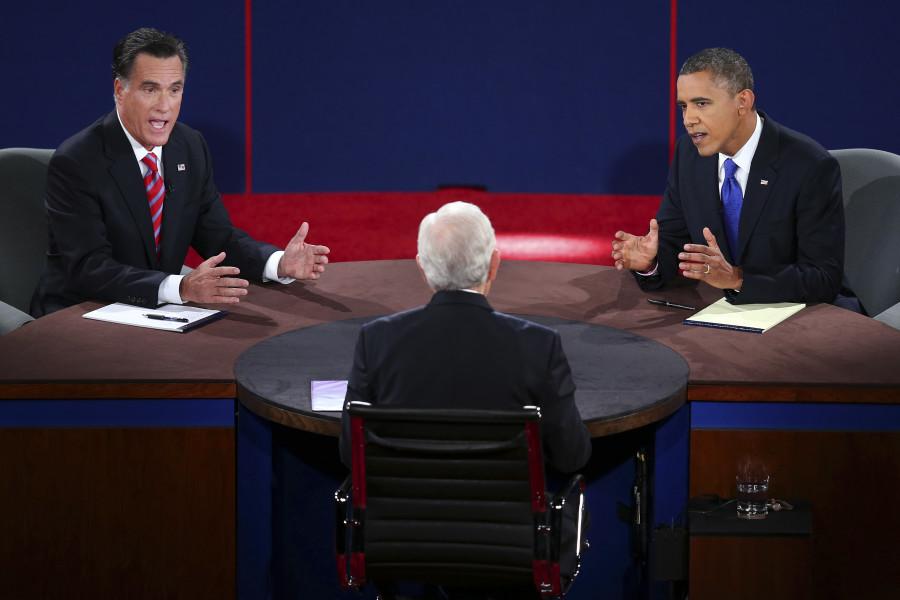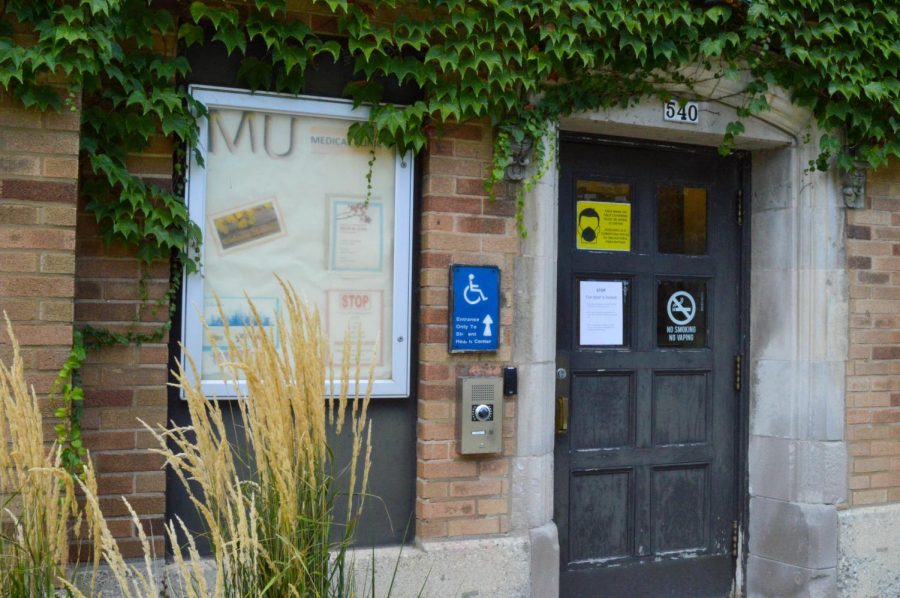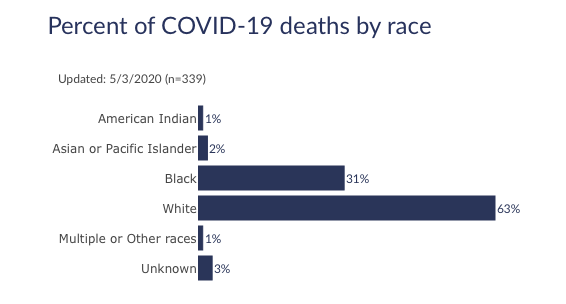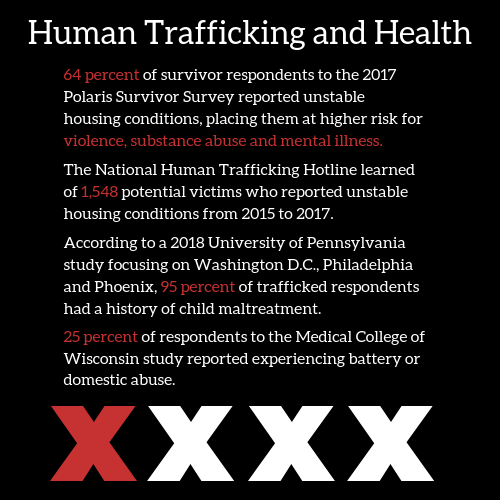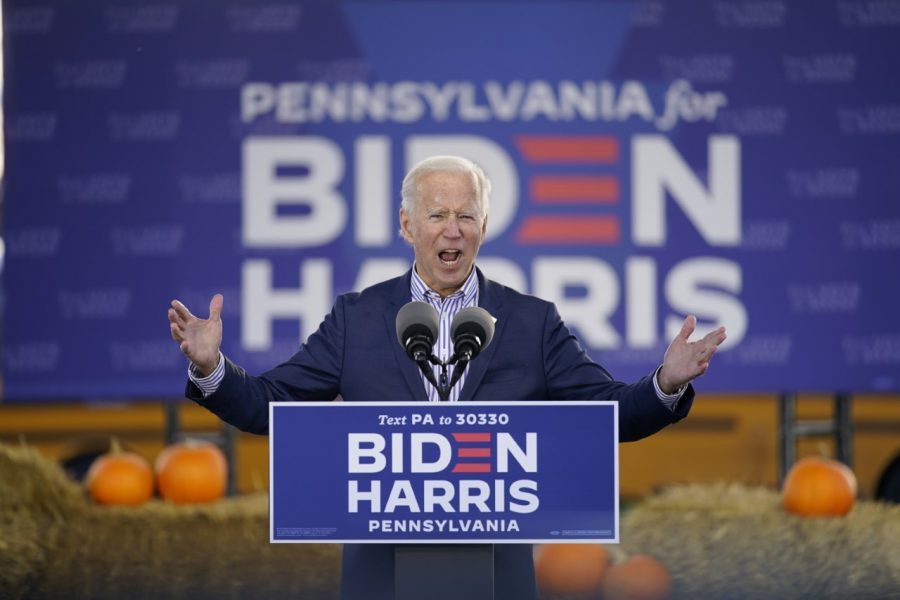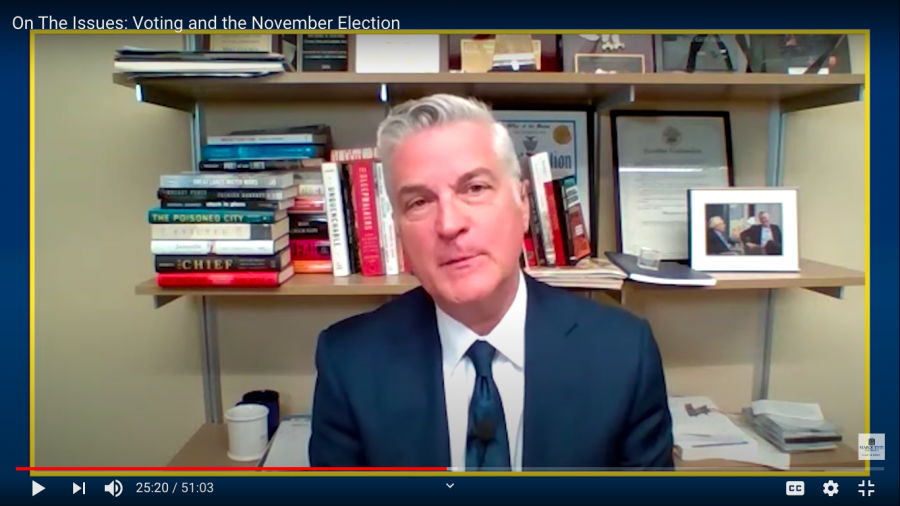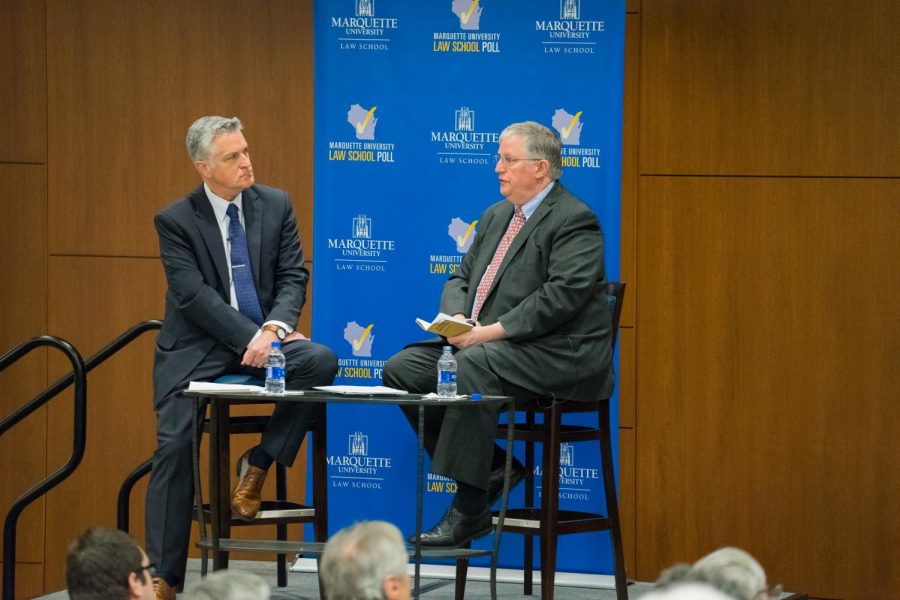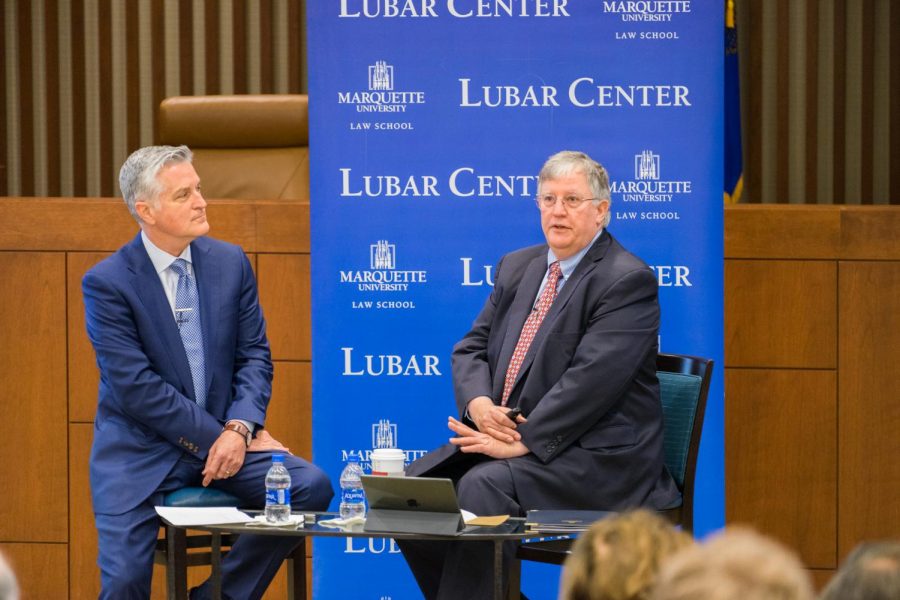Senator discussed health care reform, war in Afghanistan at forum
 As legislators work on health care reform and President Barack Obama makes a decision about the war in Afghanistan, Senator Russ Feingold (D-Wis.) asserted Friday that a public option is vital to true health care reform and troops need to be withdrawn from Afghanistan.
As legislators work on health care reform and President Barack Obama makes a decision about the war in Afghanistan, Senator Russ Feingold (D-Wis.) asserted Friday that a public option is vital to true health care reform and troops need to be withdrawn from Afghanistan.
Feingold, who appeared in Mike Gousha’s “On the Issues” series at Marquette Law School, said it would be difficult to support a health care bill without a public option.
Feingold said he has strong reservations about a health care bill without a strong public option.
“I’m certainly not inclined to vote for it without a strong public option,” he said.
Senate Majority Leader Harry Reid (D-Nev.) recently rejected a weak public option proposal for the legislation he’s writing, Feingold said.
Reid’s current public option, which refers to a government insurance plan, would allow states to opt out of the program.
But unless states said they wanted out, it would exist there, Feingold said.
The goal, Feingold said, is to have a bill on the president’s desk before the State of the Union address in January.
Feingold said the desire for health care reform has been the biggest concern for the Wisconsinites who spoke at his listening sessions the past 17 years, but that it is also a deeply divisive issue in the state.
Katie Scott, a sophomore in the College of Arts & Sciences, said she liked how Feingold wasn’t afraid to express bipartisan views, including his willingness to vote against health care if there’s no public option, because he realizes the people of Wisconsin have bipartisan views.
Feingold is known for reaching across the aisle to work with Republicans on legislation, most notably the Bipartisan Campaign Reform Act, otherwise known as the McCain-Feingold Act, which he worked on with Sen. John McCain (R-Ariz.).
“He’s actually in it for the state of Wisconsin and to show the country what Wisconsin thinks,” Scott said.
It’s common for Democratic legislators to vote with their party, especially now that there’s a Democratic majority in Congress, Scott said.
“I thought it was really inspiring that he’s willing to vote for the people of his state,” she said.
Feingold, a member of the U.S. Senate Committee on Foreign Relations, also said he still believes troops should gradually be withdrawn from Afghanistan and is against sending in more troops.
Anne Taylor, a junior in the College of Arts & Sciences, said she liked how Feingold addressed the main issues — health care and Afghanistan — without dancing around them.
Taylor, who’s currently interning at Feingold’s campaign office, said she agreed with Feingold that the government can’t immediately remove the troops, but that they do need to be removed eventually.
The troops in Afghanistan are in danger now and if the government sends in more troops, more soldiers will be in danger, Feingold said.
He said it is easy to express his opposition but “stopping bullets would be tough.”
The most effective way to stop more troops from entering Afghanistan would be to stop the money, Feingold said. However, people tend to be hesitant about going against a president’s decision to send in troops.
President Barack Obama is still considering new strategies for the war in Afghanistan.
“It’s nice to know this president doesn’t make decisions in three minutes on these types of issues,” Feingold said.
Departing a bit from his previous statements, Feingold said if the president truly believes the military needs to stay in Afghanistan, the way to do it is to go heavy, he said.


